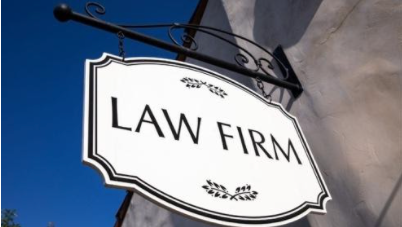Dec 6, 2023
Explore a Hidden Wealth of Diligence Content – Law Firm Websites
ResourcesSources

Law firm websites are a great source of global diligence content.
Explore how to find law firm sites on the web, locate useful content on the site and ideas for how to use the content to advance your diligence projects.
Law firm websites are a great, but not obvious, source of diligence content. A law firm website may contain a mix of legal and regulatory content in the form of ideas, insights, topic analysis and updates. Since there are law firms all over the world these sites are a source of global content.
Consider adding law firm websites toWhat your library of sources; they are a potential wealth of diligence materials. To learn more about these types of sites and how to find them on the web take a look at the post.
Diligence File Source Record – Law Firms

What are law firm websites?
A law firm website is a site that is published by or on behalf of a law firm. The law firm may also maintain a social media presence through one or more online social platforms such as Meta (Facebook), Linked In, Instagram or Tik Tok but the focus here is on the primary website.
The first law firm sites were marketing and information sites. They usually included a directory of lawyers, descriptions of practice areas, contact information and directions to the office’s physical location. Subject matter content was sparse and there was very little news or legal analysis.
Things have changed over time. Law firms, like other businesses, realize that providing content is a great way to market their business, establish themselves as experts and potentially attract clients.

What type of content can you expect?
Many law firms have transformed their sites from online directories into information powerhouses. Eager to demonstrate knowledge and understanding of their areas of law and regulation and to prove that they are familiar with the latest technologies, law firms are creating websites that are current, content rich and increasingly multimedia.
Today, typical law firm site content includes a mix of articles and blogs that analyze legal trends, new regulations and news stories. The firms also post commentary on regulatory matters, provide links to government materials and reports and some firms even offer podcasts and webinars. This material is generated or authored by attorneys that own or are employed by the firm as well as other paraprofessionals, administrators and marketing professionals that are working on behalf of the law firm.
Each website is different but here are some of my observations about law firm website content:
- Subject Matter – The content subject matter tracks the firm’s areas of practice. Large firms practice in multiple areas of law so there may be multiple topics covered by the site. A smaller firm may focus on only one or a few areas of expertise.
- Format – mostly printed in the form of articles, commentary or blog posts. Firms are beginning to offer podcasts and webinars, I think that audio and video formats will become more common.
- Frequency of publication – this varies and I have noticed that publication schedules are not always shared with the user. Blogs are more likely to be on a regular content publishing schedule. Some firms update their sites only when there is a major event specific to the law firm, such as publishing a paper or winning a case, or when there is major change to a law or regulation relevant to a firm’s practice areas. If you find a law firm site that is helpful you will have to check back on a regular basis.
- Volume – Law firms are “sized” based on the number of lawyers that practice in the firm. Large firms with many lawyers and multiple areas of law may have more content on their site because they have more people, including administrative staff, that can generate and maintain a content rich site. But that is not a rule, Smaller specialized law firms can have substantial sites that focus on a particular practice area. The only way to assess the site is to review it and then frequent it for updates.
- Geographic – Law firm’s practices are defined geographically so the site content will reflect the geographic nature of the practice. For example, a law firm based in the UK is probably going to have a content emphasis on UK law matters.

How can you use the content for your diligence projects?
As you become familiar with law firm websites and the type of materials that are available, you will find a variety of uses for the material but here are some ideas:
- Background material – A law firm memo or blog can provide a quick lesson if you need to background for a topic or industry that has a legal or regulatory connection to your project,.
- Information about specific legal issues – if there is a legal issue that applies to your project law firm sites provide materials about the status, implications, changes and laws that apply to that issue.
- Regulatory enforcement and regulatory action – If you are interested in a regulated industry, such as banking, insurance or pharmaceuticals, there are law firms that focus on these industries. Lawyers practicing at these firms follow the regulations, direction, pace and future of industry regulations as well as enforcement issues that relate to the industry and they make those areas the topic of their online content.
- Insight and Guidance – law firms do not know your particular situation or problem, but they have years of collective experience with translating legal requirements into practical actions and solutions. This advice may be reflected in content that they post. Some firms publishing legal subject matter guides that are free to download.
- History – if you need the history of a law or regulation or commentary on a past event, the archive on the site may provide you with the material that you need to understand the past.
- Experts – if you are looking to identify experts (individuals or firms) in an area of law, you can start by reviewing biographies that are posted on sites as well as reading or listening to materials generated by those individuals and firms.
- Ongoing Information – if you need ongoing information about a topic, you may find law firms that follow that topic and offer updates through subscriptions and alerts.

How do you get access to law firm websites?
Access is usually not an issue. These are public sites, although there may be private areas of the site. Based on my reviews of law firm sites there is:
- Public Access – These sites are marketing tools so the content that is posted is available for public viewing. You don’t need to be a client of the firm and even if you see material that is labeled “client memoranda” or something similar, if it is on the site and not behind a privacy wall it is available to you.
- Client Portal – If material is only for a client of the firm it will be accessible through a portal and that portal may have a gateway on the public site. The client portal will require sign in credentials. I have noticed that firms are moving away from providing access to client portals on their public sites.
- Registration/Identification – Usually you do not need to identify yourself to view content on the site. If you want to receive newsletters, alerts or updates you may be required to provide your name, and email address. Additional personal identification may be required if you sign up for a webinar, or to download a report or white paper.
- Cost – Free, at least in the US. I have not visited any law firm site that requires payment for posted content.

How to find law firm websites
If you have the names of law firms that provide legal work for your organization and they are working in your area of interest, start with those names.
What if you don’t have a name, how do you find law firm websites?
- Identify your parameters
Example, if you want to read about data protection regulations in New Zealand – look for law firms that have data protection practice areas and operate in New Zealand. This may include law firms that are primarily located in New Zealand or law firms that are primarily located in another country with a satellite office in New Zealand.
- Pick a search tool
A word of advice, look for multiple websites. Don’t stop at one site, look for multiple sites so that you get a range of content viewpoints and experience.

Exploring the content
There isn’t any uniform way that law firms set up their sites or label the site so you will have to familiarize yourself with each site so that you can find the content that is useful for your project. Generally, I found that useful content may be in sections or areas that are called:
- Publications
- Newsletters
- News
- Blogs
- Articles
- Client Memoranda (memo)
- Insights
- Alerts
- Thought Leadership
- Tools
- Reports
- Guides
- Podcasts
- Webinars
- Summary
- Updates
- Archives

More information about law firm sites
Global trend – Law firms all over the world are using their sites to present substantive material. If you have a diligence project involving a country outside of the US, look for law firms that practice in the country of interest and see what you can find. It is also possible that a law firm is in multiple countries and so it may be a source of information for several countries.
User Friendly – While these sites are usually literally easy to use, the level of writing and use of legal terms will vary. Depending on the subject matter the content provided may require a background in the topic or the law.
Not interactive –At least in the US, law firm sites are usually not interactive. You will not have opportunities to engage in conversation with the lawyers and other users of the site. Typically, there are no comments, no community type platforms, no ability to ask questions about a topic. You will not get advice specific to your diligence project or your facts. This is by design. US law firms follow specific rules and guidelines for marketing materials. They must be careful not to offer legal advice and not to form any relationship with a user that may be interpreted as an attorney-client relationship.
Disclaimers – Law firms’ websites have a number of disclaimers, be sure to read them. The one that they usually highlight is that fact that you do not become a client by visiting these sites. These sites are for general information purposes only.
General Material Only – This is a post about how to find US law firm websites that may offer you general diligence materials. If you need to find a lawyer to do legal work for you that is a different process and is not addressed by this post.

Always evaluate and if needed verify
Evaluate – This is a post about how law firm websites may be useful sources of content for diligence projects so treat law firm content as you would any other source. Meaning, if you find a law firm we site that you think has useful content, evaluate the publisher (law firm), the author (if one is provided) and the material to make a decision if the source and the material are right for your diligence project.
Verify – If you have any doubts, verify. For example you would want to verify if:
- you have questions about the knowledge level or expertise of the law firm or the author of the content
- the quality of content appears questionable
- the content does not seem complete
- you remain unsure, skeptical or uneasy about the quality of the content, advice or other information provided.
Verifying means you look for other sources to confirm what you have already found. Don’t hesitate to verify if you have doubts.
If you enjoyed this post please subscribe to the newsletter – The Diligence Frame


Subscribe for Diligence Updates
Get the latest updates, resources, offers, and more.
"*" indicates required fields
The Diligence File respects your privacy. Privacy Policy